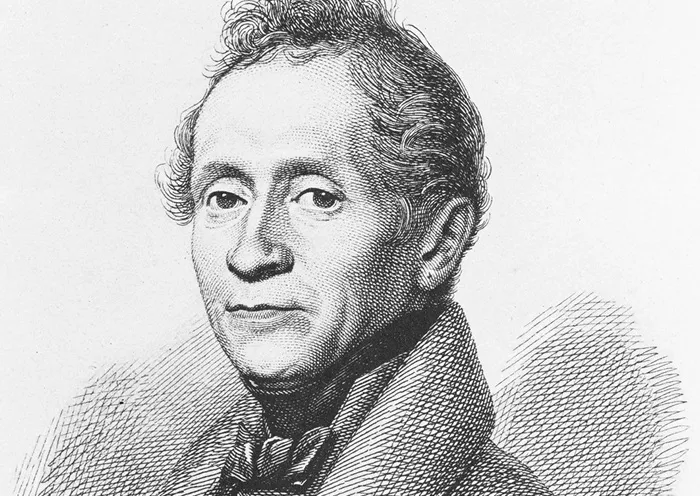Joseph Freiherr von Eichendorff (1788–1857) is one of the most renowned 19th Century German poets, widely associated with the Romantic movement. His works, particularly his poetry and prose, reflect the essential characteristics of German Romanticism, such as an emphasis on nature, nostalgia, religious faith, and the longing for an idealized past. Eichendorff’s influence on German poetry is profound, as his lyrical style and thematic focus continued to inspire generations of poets and writers.
This article explores Eichendorff’s contributions to German poetry, his literary themes, and his significance within the broader context of 19th-century literature. It will also compare his work with other poets of the period, illustrating his unique place in the Romantic movement.
Joseph Freiherr von Eichendorff
Joseph von Eichendorff was born on March 10, 1788, in Lubowitz, a small Silesian village (now in Poland). He was raised in an aristocratic Catholic family, which provided him with a strong sense of cultural identity and faith. His early education took place in Breslau, followed by studies in law at the universities of Halle and Heidelberg.
During his time at Heidelberg, Eichendorff was introduced to Romantic literature and became acquainted with the works of poets such as Achim von Arnim and Clemens Brentano. These writers, associated with the Heidelberg Romantic circle, greatly influenced his literary development.
After completing his studies, Eichendorff pursued a career in the Prussian civil service. However, despite his official duties, his passion for literature never waned. Throughout his life, he continued to write poetry, prose, and literary criticism. His most celebrated works include the novella Aus dem Leben eines Taugenichts (1826) and numerous lyric poems that have been set to music by composers like Robert Schumann and Hugo Wolf.
Eichendorff and German Romanticism
Eichendorff’s poetry is a quintessential representation of German Romanticism. His poems frequently depict themes of nature, wanderlust, religious devotion, and nostalgia for a lost world. Unlike the more philosophical and introspective tendencies of other Romantic poets, Eichendorff’s works are characterized by their musicality, simplicity, and accessibility.
A defining feature of his poetry is its seamless integration of nature and emotion. The natural world in his works is not merely a backdrop but a living entity that reflects the poet’s inner state. For example, in his famous poem Mondnacht, the imagery of the moonlit night serves as a metaphor for a spiritual homecoming, blending earthly experience with a sense of divine transcendence.
Another hallmark of his style is the theme of wandering (Wandern). Many of his poems depict solitary wanderers exploring the beauty of nature, symbolizing the Romantic ideal of freedom and the search for meaning beyond the material world. This motif aligns him with other 19th Century German poets such as Heinrich Heine and Ludwig Uhland, who also explored themes of nature and movement, though with varying tones and intentions.
Comparison with Contemporary Poets
To fully appreciate Eichendorff’s place in German poetry, it is useful to compare his works with those of his contemporaries.
Heinrich Heine (1797–1856) – While both poets were deeply influenced by Romanticism, Heine’s works often contained elements of irony and political critique, setting him apart from Eichendorff’s more idealistic approach. Heine’s Deutschland. Ein Wintermärchen (1844) is a satirical take on Germany’s political state, whereas Eichendorff’s poetry tends to evoke a timeless, pastoral nostalgia.
Clemens Brentano (1778–1842) – Brentano was an important figure in early German Romanticism, known for his folk-inspired poetry and storytelling. Like Eichendorff, he emphasized the musicality of poetry and the mystical qualities of nature. However, Brentano’s works often leaned toward the fantastical and whimsical, whereas Eichendorff maintained a more subdued and introspective tone.
Ludwig Uhland (1787–1862) – Uhland, another major 19th Century German poet, shared Eichendorff’s interest in folk traditions and national identity. However, Uhland’s poetry frequently focused on medieval themes and historical legends, whereas Eichendorff’s poetry was more personal and introspective.
Eichendorff’s ability to combine simplicity with profound emotion distinguishes him from his contemporaries. His verses, often adapted into songs, exemplify the Romantic ideal of unity between nature, human emotion, and spirituality.
Eichendorff’s Influence on German Poetry
Eichendorff’s legacy in German poetry is substantial. His works influenced later poets and composers who sought to capture the lyrical and emotional qualities of Romanticism. The musical adaptations of his poems by composers such as Franz Schubert, Robert Schumann, and Johannes Brahms further cemented his status as a poet whose work transcended the written word.
Beyond music, Eichendorff’s impact is evident in later literary movements, particularly in Symbolism and the Heimatkunst (homeland literature) movement. His evocation of an idealized rural past resonated with 19th and early 20th-century German literature, which often sought to reconnect with tradition in times of political and social change.
Conclusion
Joseph Freiherr von Eichendorff remains one of the most significant figures in 19th Century German poetry. His contributions to the Romantic movement, his evocative imagery, and his deep connection with nature continue to inspire scholars and literary enthusiasts. While his contemporaries such as Heine, Brentano, and Uhland explored Romantic themes in their unique ways, Eichendorff’s particular blend of lyrical beauty and spiritual depth gives his poetry a timeless appeal. His influence on German poetry extends far beyond his lifetime, affirming his place as one of the defining voices of German Romanticism.

